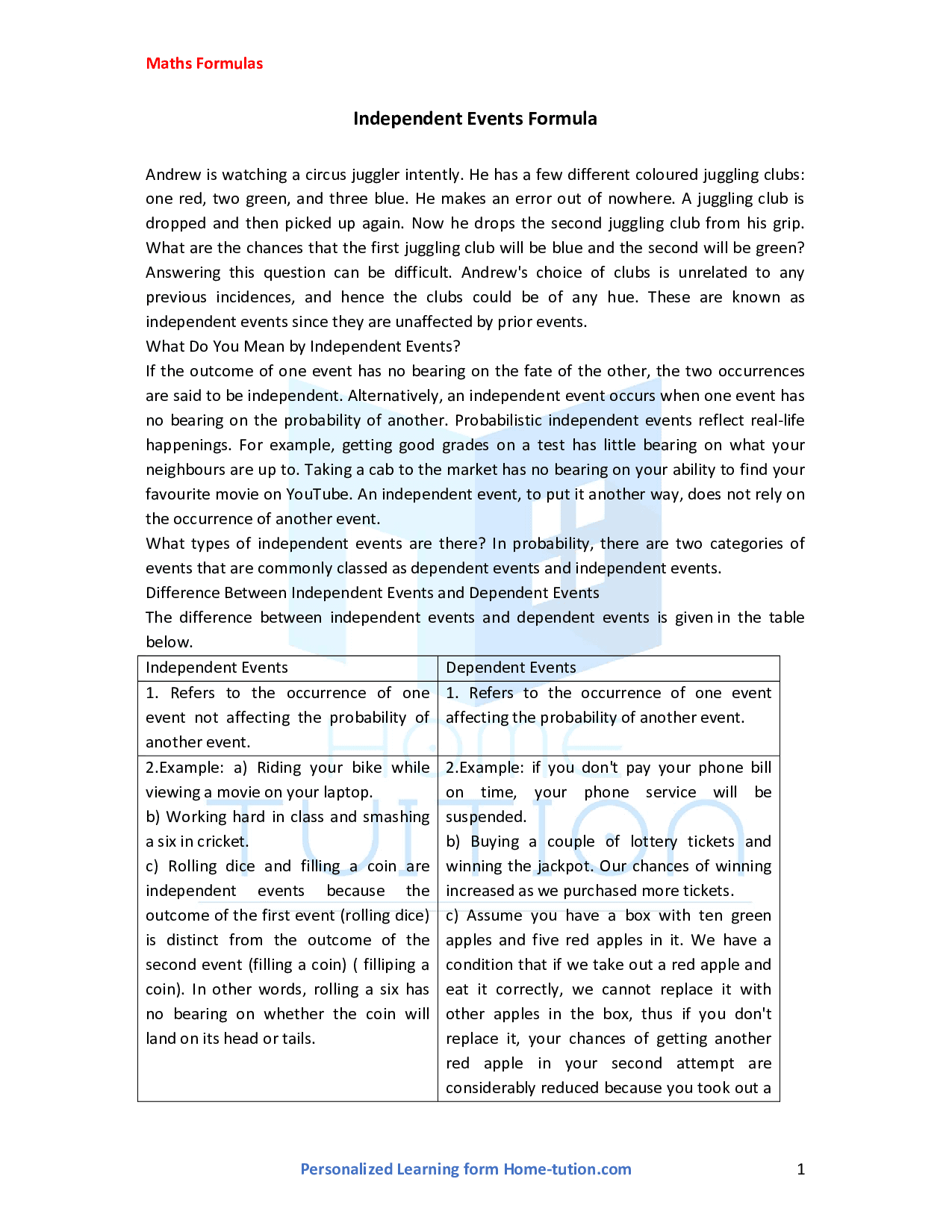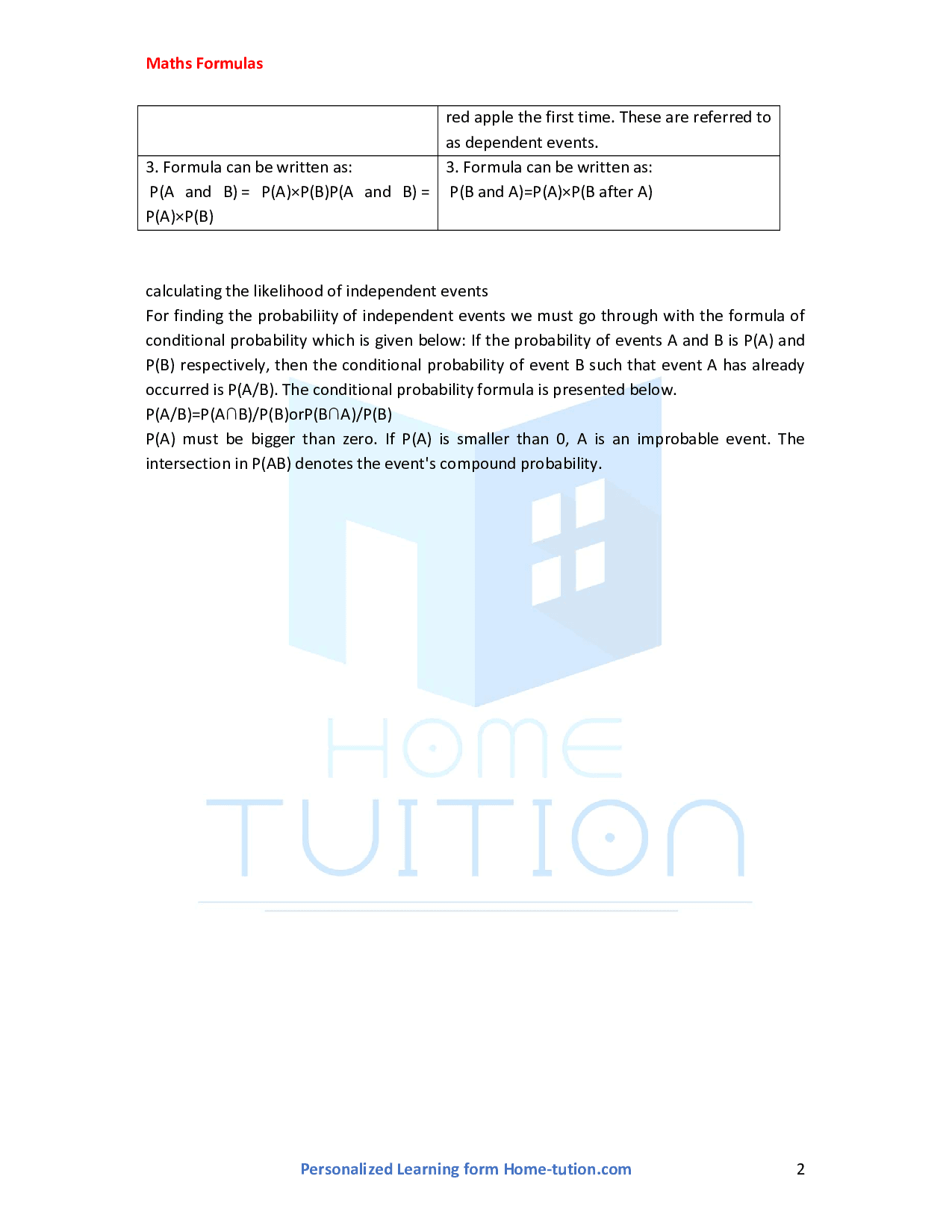About Independent Events Formula
Andrew is watching a circus juggler intently. He has a few different coloured juggling clubs: one red, two green, and three blue. He makes an error out of nowhere. A juggling club is dropped and then picked up again. Now he drops the second juggling club from his grip. What are the chances that the first juggling club will be blue and the second will be green? Answering this question can be difficult. Andrew's choice of clubs is unrelated to any previous incidences, and hence the clubs could be of any hue. These are known as independent events since they are unaffected by prior events.
What Do You Mean by Independent Events?
If the outcome of one event has no bearing on the fate of the other, the two occurrences are said to be independent. Alternatively, an independent event occurs when one event has no bearing on the probability of another. Probabilistic independent events reflect real-life happenings. For example, getting good grades on a test has little bearing on what your neighbours are up to. Taking a cab to the market has no bearing on your ability to find your favourite movie on YouTube. An independent event, to put it another way, does not rely on the occurrence of another event.
What types of independent events are there?
In probability, there are two categories of events that are commonly classed as dependent events and independent events.
| S. No. | Independent Events | Dependent Events |
|---|---|---|
| 1. | Refers to the occurrence of one event not affecting the probability of another event. | Refers to the occurrence of one event affecting the probability of another event. |
| 2. | Example:
|
Example:
|
| 3. | Formula can be written as: P(A and B) = P(A) × P(B)P(A and B) = P(A) × P(B) | Formula can be written as: P(B and A) = P(A) × P(B after A) |
Calculating the likelihood of independent events
For finding the probability of independent events we must go through with the formula of conditional probability which is given below: If the probability of events A and B is P(A) and P(B) respectively, then the conditional probability of event B such that event A has already occurred is P(A/B). The conditional probability formula is presented below.
- P(A/B) = P(A∩B)/P(B) or P(B∩A)/P(B)
P(A) must be bigger than zero. If P(A) is smaller than 0, A is an improbable event. The intersection in P(AB) denotes the event's compound probability.
Maths Formulas prepared by HT experts are listed on the main page.

